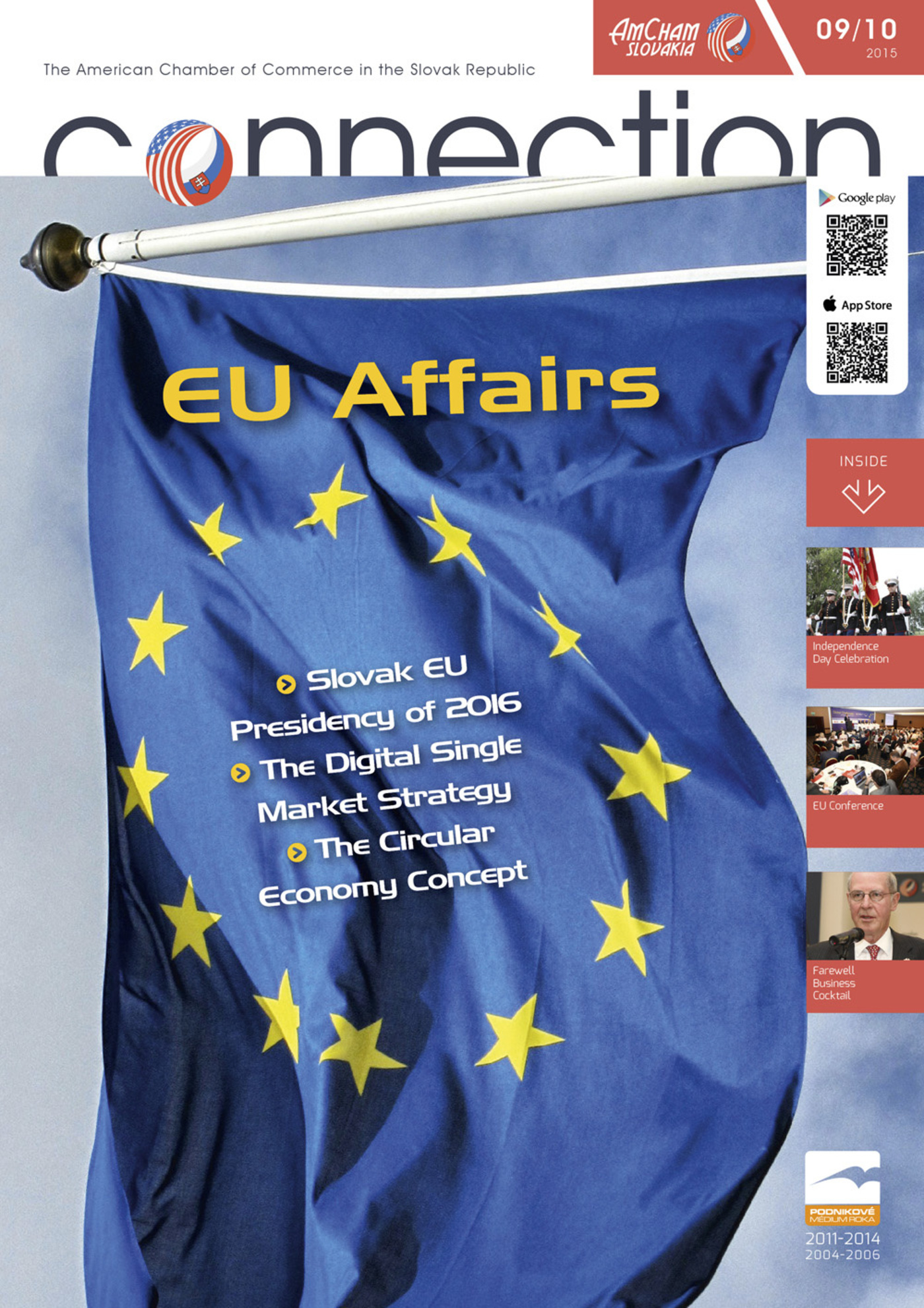At the core of this modern economic system is the mobile Internet. This requires ubiquitous connectivity that will enable the Internet of Things and cloud technologies to deliver new high-tech innovations. Consumers want to access content everywhere on any device. More and more objects – from cars to packages – using machine-to-machine technology need to stay seamlessly connected around the globe. Businesses need to efficiently move data across borders.
AT&T is seeing demand for M2M solutions accelerating. We have 22 million connected devices on our network – wearables, homes, cars and more. This is driving Data Analytics that in turn are improving products and services. For example, information on energy use can improve distribution, optimize power plant utilization, and facilitate more efficient pricing. Data can be useful for urban planners including making adjustments to the transport network of a city.
Europe’s current regulatory framework – with its 28 different sets of rules and regulations – is far from seamless. As the digital single market strategy indicates, a series of technical and legislative barriers will need to be removed if the EU is to benefit fully from the potential of technology. The vision of a digital single market will enable speed and scale across all of Europe, in a manner that is not possible when navigating the variations in 28 markets.
European leaders have realized that a policy framework needs to be put in place to nurture this process and ensure that Europeans reap the full benefits that it can bring. The response of the European Commission has been the launch of the flagship Digital Single Market Strategy. It sets out sixteen reforms that the Commission intends to pursue in 2015 and 2016 in order to realize a true Digital Single Market.
The Commission’s efforts to encourage efficient data flows and spectrum harmonization across the region are particularly welcome:
- In 2016, the Commission is aiming to tackle restrictions on the free movement of data, for reasons other than the protection of personal data, and “unjustified restrictions” on where data is stored.
- Spectrum is the lifeblood of the mobile Internet. Although spectrum management and revenues will remain with the Member States, the Commission aims to develop a consistent approach to spectrum in the EU.
In addition, the importance of investment has never been clearer than during the mobile Internet revolution. To sustain investment across our industry while driving competition, it is important that policymakers promote modern, flexible policies that encourage growth for this fast-moving industry.
Spectrum is an essential component of the mobile Internet – it influences everything else. The growth of mobile data traffic will require the availability of radio spectrum to enable this increased connectivity. Ensuring device connectivity and sufficient bandwidth for all of the uses of wireless sensors will require careful planning.
Security is also a major priority, important to everyone. Consumers and businesses need to trust that their data will be safe. AT&T has built multiple layers of security into its network, and we are committed to being transparent about how we protect the privacy of customer information. It is important policymakers in all markets around the world optimize policies related to security, privacy and innovation, so people can continue to benefit from cross-border technology and communication with confidence.
Initiatives in these areas are vital to ensuring consumers, businesses and devices are connected wherever they go. If taken on board and implemented by national governments these initiatives will enable pan-European telecoms networks, digital services that cross borders and a wave of innovative European start-ups. As the Commission notes, the scale provided by a completed Digital Single Market will also help EU companies expand outside the EU and make the continent much more attractive for global investment.
The digital revolution will benefit the Slovak Republic. AT&T has been operating in Slovakia for fifteen years now, supporting services for multinational companies in various parts of the world. Over this period, AT&T’s four centers in Slovakia – one in Košice and three in Bratislava – have grown to a workforce of over 3,000. This investment in Slovakia has been made possible for several reasons. First, the availability of a well-educated, highly-skilled, and highly-motivated workforce in the heart of the rapidly expanding Central and Eastern European market is key. Second, Slovakia has nurtured its economy in the early years of the twenty-first century and has fostered an economic environment that welcomes and encourages our investment.
Today, AT&T employs technical specialists and project managers in Slovakia who specialize in delivering high-quality value add services and comprehensive solutions in the sphere of voice, data and video transfer for multinational customers.
The centers in Bratislava have evolved to be part of AT&T’s Worldwide Customer Service Centre, which is a network of centers in locations such as Singapore, the UK, Australia and Japan. The Košice Centre specializes in router configuration, network engineering and supply management for AT&T’s multinational customers around the world; its range of positions is broad enough to enable career growth and new skill development.
With the right regulatory framework in place, the digital future looks bright for the Slovak Republic and the rest of Europe.
Gabriel Galgóci, Director Client Network Operations Management & Slovakia Country General Manager; AT&T Global Network Services Slovakia



Follow us